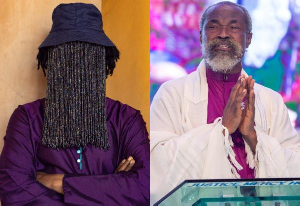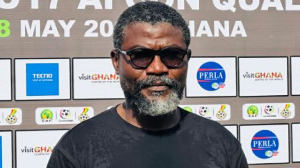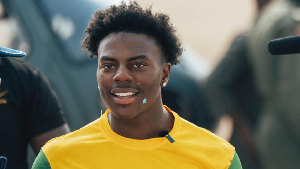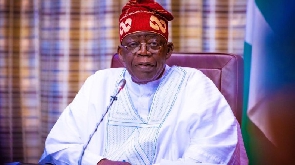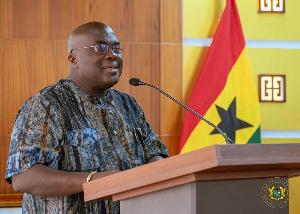A GNA Feature by Samuel Osei-Frempong
Accra, Sept. 28, GNA- Not too long ago a television station showed on its screen a Nigerian comedy titled 'Mr Ibu', with the popular Nigerian Actor, John Okafor, as the lead actor.
In this comedy, many scenes sought to portray persons with disability as indecent, wild, mischievous and not good enough to be lovers.
In one of the scenes, after having chatted with a lady on a commuter bus, with the intention of taking the wooing further, the main character, changes his mind on seeing that the lady had difficulty in walking and brutally ignores her.
In another scene, his hopes of having an ideal woman were dashed when the would- be- wife suffered a fit.
The role played by a person with growth problems as a troublesome and mischievous son of Mr Ibu, clearly depicted the person with disability as violent.
The same station aired a joke on its musical programme where a comedian invited his audience to his world of disability bashing. In his joke, he had asked for "who can express a situation when a deaf and dumb choked on food"
The Ghana National Association of the Deaf protested against the humiliation but the outcome was not satisfactory.
The group said "Although this might have generated laughter and fun, the fact that the question was to ridicule a group of persons is in no doubt unacceptable and does not portray the deaf and for that matter persons with disability positively. It only goes to ridicule them, to say the least."
Disabled bashing and ridiculing is becoming a feature of hip life and even run through pronouncements of certain presenters on FM stations.
What the Ghanaian media is taking for granted is that it is creating a situation where the disabled is portrayed as sinister or evil, objects of ridicule and even a burden on society.
The negative implications for the disabled person is that the abuse has been under-estimated but it undermines what little opportunity they have to be taken seriously by the larger society.
It also saps their self-confidence and esteem leaving a larger psychological scar on the younger ones.
The idea of being helpless and must be taken care of or being sexless or abnormal creates the assumption that the disabled is an undesirable person.
These ideas had in the past and even now fed the ideology pot of extremist groups that had sought to eliminate them.
The print media is equally guilty by using the disability of common criminals in their headlines and the body of stories as sweeteners. They have helped to sink down the idea that most of those with disabilities are criminals.
The person with disability is now fair game for abuse and ridicule and even a source of comedy that would be willingly aired by a Television station during prime time.
It is true that the media should reflect popular culture, but it could also be argued that not all aspects of popular culture takes after morality and common sense.
An aspect of popular culture that seeks to demonise and ridicule and excludes person from the core of society due to disability is certainly barbaric.
Ghana has come a long way to live above such pettiness. It is now clear that the image of the disabled is being crushed in the media.
What is worrying is that they lack the resources or the legal framework with which to fight this rather lethal type of discrimination. Perhaps the disabled groups should think of toasting their own politicians so that they could influence policy-making. This strategy worked for the Greens in Europe and now they have reduced the frequency of demonstrations and heckling.
The people who are promoting the abuse of the person with Disability through the media should understand that among the yardsticks by which a society's is measured for its respect for human rights, to evaluate the level of its maturity and its generosity of spirit, is by looking at the status that it accords to those members of society who are vulnerable, disabled, the senior citizens and its children..."
The concept of a caring society is strengthened and deepened when it is recognised that its disabled people enjoyed the same rights as others and that it pursued programmes towards the promotion of their welfare. 28 Sept. 04
Opinions of Wednesday, 29 September 2004
Columnist: GNA


